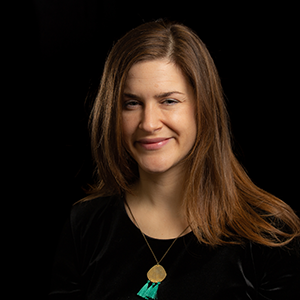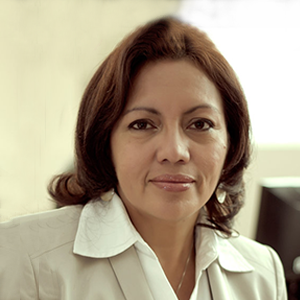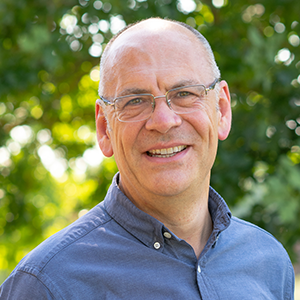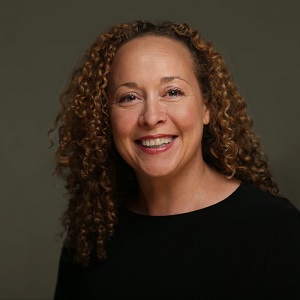In this sixth instalment of our Speaker Series, which is co-hosted with the Charité Center for Global Health, we will explore the intricate interplay of climate change and infectious disease threats. How does climate and land use change affect the geographic distribution and behaviour of disease vectors? What is the connection between extreme weather events and infectious disease outbreaks? Can climate and environmental data enable accurate forecasting and pro-active preparedness for climate-sensitive disease outbreaks?
Our speakers have extensive experience in researching climate-sensitive infectious disease threats and have supported preparedness and response strategies, across the globe. Prof. Rachel Lowe, ICREA Research Professor and Global Health Resilience Group Leader at the Barcelona Supercomputing Center, will discuss her work on decision-support tools for addressing emerging infectious diseases in climate change hotspots. Prof. Mercy J. Borbor-Cordova, Professor at the Escuela Superior Politécnica del Litoral and Senior Scientist at the Pacific International Center for Disaster Risk Reduction, will share her extensive experience as a researcher and policymaker for planetary health at the local, national and regional level. John Sillitoe, Director of the Genomic Surveillance Unit at the Wellcome Sanger Institute, will provide insights into innovative genomic surveillance approaches for climate-sensitive diseases. Our speakers’ presentations will be complemented by brief interventions from globally renowned experts in the field. We look forward to inspiring discussions with these experts and you.
Speakers
Professor Rachel Lowe | Speaker

ICREA Research Professor and Global Health Resilience Group Leader at the Barcelona Supercomputing Center
Prof Rachel Lowe is a Catalan Institution for Research and Advanced Studies (ICREA) Research Professor, leading the Global Health Resilience Group at the Barcelona Supercomputing Center. She also holds a Royal Society Dorothy Hodgkin Fellowship at the London School of Hygiene & Tropical Medicine. Rachel’s research involves co-developing policy-relevant methodological solutions, to enhance surveillance, preparedness and response to climate-sensitive disease outbreaks and emergence. Her published work has focused on the viability of integrating seasonal climate forecasts in early warning systems for infectious diseases in Latin America, the Caribbean and Southeast Asia. Rachel coordinates two Wellcome Trust digital technology, climate, and health projects, HARMONIZE and IDExtremes, which aim to provide robust data and modelling tools to build local resilience against emerging infectious disease threats in climate change hotspots. She is the co-coordinator of the Horizon Europe project IDAlert, which aims to tackle the emergence and transmission of zoonotic pathogens by developing novel indicators and innovative early warning systems to strengthen Europe’s resilience to emerging health threats. Rachel is a member of the World Meteorological Organization Steering Group for Sub-seasonal Applications for Agriculture and Environment (SAGE) project of the World Weather Research Programme (WWRP) and the Lancet Commission for Strengthening the Use of Epidemiological Modelling of Emerging and Pandemic Infectious Diseases.
Professor Mercy J. Borbor-Cordova | Speaker

Professor at the Escuela Superior Politécnica del Litoral, Senior Scientist at the Pacific International Center for Disaster Risk Reduction
Prof Borbor-Cordova is a professor at the Faculty of Maritime Engineering and Marine Sciences at Escuela Superior Politécnica del Litoral (ESPOL) in Ecuador, and a senior scientist at the Pacific International Center for Disaster Risk Reduction (PIC-DRR). She has held multiple roles as both researcher and public officer involved in decision-making processes at local, regional and national level in areas of environmental and climate change management. Her research includes climate and health, climate variability and vector-borne diseases, harmful algae bloom, socioecological vulnerability in urban systems. She is the IPCC lead author of Working Group III Mitigation of Climate Change, and she is a scientific advisor of the Interamerican Institute for Global Change Research (IAI).
John Sillitoe | Speaker

Director of the Genomic Surveillance Unit at the Wellcome Sanger Institute
John Sillitoe is Director of the Genomic Surveillance Unit (GSU) at the Wellcome Sanger Institute. The goal of the GSU is to improve global human health by accelerating the use and impact of genomic surveillance. It delivers products, tools, and services that empower public health partners to add genomic information to decision-making. The GSU currently has operational surveillance solutions for malaria parasites, malaria vectors, and COVID-19, with other disease areas coming online in the near future. John joined Sanger in 2018 to help the Institute deliver its vision of making genomic surveillance accessible worldwide. During the COVID-19 pandemic, his team built and led the UK’s national COVID-19 genomics surveillance operation. At peak efficiency, John’s team was able to handle over 300,000 samples per week and provide analytical data to the four UK public health agencies. Prior to joining Sanger, John held senior leadership roles in manufacturing, engineering, defence, health, research and outsourced services. He is passionate about translating technological innovation into products that can inform real-world decision making.
Sara Hersey | Moderation

Director of Collaborative Intelligence at the WHO Hub for Pandemic and Epidemic Intelligence
Sara Hersey joined the WHO Hub for Pandemic and Epidemic Intelligence as the Director of Collaborative Intelligence, at the beginning of 2023. She is an infectious disease epidemiologist who has served in global public health leadership roles over the past two decades with the US Centers for Disease Control and Prevention, the World Bank, and Resolve to Save Lives (RTSL). Her professional experience spans more than 50 countries in Africa, Asia, the Middle East and the Caribbean where she has led efforts in outbreak preparedness and response, infectious disease prevention and treatment, strategic planning, policy, financing and program management. At the World Bank, Sara served as a senior advisor on health security and COVID-19. Sara was the first US CDC Country Director in Sierra Leone, leading their Ebola response and establishing the US Government’s Global Health Security Agenda. She was also the US CDC Country Director in South Sudan through the 2013-14 civil war. She has worked as an epidemiologist with the US CDC in Malawi and South Africa, with UNHCR responding to complex emergencies, and with FHI 360 in the Asia Pacific region. Sara Hersey holds a Master of Public Health focusing on epidemiology and complex emergencies from Tulane University and a Bachelor of Arts from Wellesley College.
Dr Oliver Morgan | Moderation

Director of Pandemic and Epidemic Intelligence Systems at the WHO Hub for Pandemic and Epidemic Intelligence
Dr Oliver Morgan is the Director of Pandemic and Epidemic Intelligence Systems at the WHO Hub for Pandemic and Epidemic Intelligence. He previously held the position of director of the Health Emergency Information and Risk Assessment Department in the WHO Health Emergencies Program. From 2007 through 2016, Dr Morgan worked for the US Centers for Disease Control and Prevention (CDC), where he held critical leadership positions in the Ebola response between November 2014 and February 2016. From March 2010 to October 2014, he was the CDC Country Director in the Dominican Republic. Dr Morgan was an Epidemic Intelligence Service Officer at CDC from 2007 to 2009 with the International Emerging Infections Program, during which time he conducted projects in Thailand, Bangladesh, Kenya, Uganda, and Guatemala. Before joining CDC, Dr Morgan worked for the UK Health Protection Agency, leading epidemiological investigations of outbreaks, chemical and radiation exposure incidents, terrorist bombings in London, natural disasters, and humanitarian civil conflicts. Dr Morgan has also worked as a consultant to the Pan American Health Organization (PAHO/WHO) in several countries. Dr Morgan’s academic achievements include a doctorate in epidemiology from Imperial College London and extensive publication in peer reviewed journals and reference books.
